Kelvin Thomson on Overpopulation in Australia and the World: Full Parliamentary Speech 17-08-09
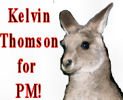 Kelvin Thomson on Overpopulation in Australia and the World: Parliamentary Speech 17/08/09
Kelvin Thomson on Overpopulation in Australia and the World: Parliamentary Speech 17/08/09
POPULATION
We all know that the world has plenty of problems. Let me run out some that come to mind without much effort – global warming, food crisis, water shortages, housing affordability, overcrowded cities, transport congestion, fisheries collapse, species extinctions, increasing prices, waste, terrorism. We scratch our heads and try to come up with solutions.
It staggers me that so often we ignore the elephant in the room – increasing population. Each of these problems is either caused by, or exacerbated by, the global population explosion. In the first two million years of human existence, the global human population was only a few million. Up to 1950, it had managed to climb to 2 billion. In the fifty-odd years since, it has trebled to 6 billion people. The population is projected to double again.
The consequences of the present population pressure are dramatic. In my opinion it is not plausible that the world’s population could double without the consequences becoming catastrophic. And yet when it is suggested that the world’s population is a problem, there is zero interest from policy makers. In my view it isn’t so much a problem as the problem. Let me return to that list of problems, and describe the impact of population on them.
1.
GLOBAL WARMING
Population plays a critical role in global warming. We have one earth, one atmosphere, and every carbon dioxide molecule we release into it contributes to global warming. The more of us there are, the more carbon dioxide is released. Simple, undeniable. Al Gore identifies population growth as one of the big three drivers of the rapid spurt of greenhouse gases during the past 50 years. People who believe we can meet serious carbon targets without curbing population growth are kidding themselves, they are delusional.
There is no reasonable prospect that Australia will reduce its total level of greenhouse emissions, while our population grows by 1 million every four years, as is presently the case. Population stabilisation must be part of the plan to contain greenhouse emissions, not merely for Australia, but for the rest of the world as well.
2.
FOOD CRISIS
The combination of declining arable land and continued population growth has caused the world’s per capita food production to go into decline. We are now in a situation where there is a global shortage of food which is set to get worse. In future, more people will starve, not fewer.
Figures released by the UN Food and Agriculture Organisation show that the number of people suffering from chronic hunger is rising, not falling. In June last year the Australian Government’s Rural Industries Research and Development Corporation said that world agriculture is experiencing a growing crisis, and its first named demand side factor was increasing global population.
3.
WATER SHORTAGES
As with agricultural decline, population growth is fuelling water shortages, both indirectly through climate change and directly through extraction and pollution. Around the world one in three people is suffering from water shortage. Assuming modest rates of population growth, we will use 70% of the world’s accessible fresh water by 2025. Already 400 million children worldwide are drinking dangerously unclean water, and one child dies from a waterborne disease every 15 seconds. According to Melbourne Water, water scarcity in and around Melbourne is being driven by both climate change and population growth.
4.
HOUSING AFFORDABILITY
Housing affordability in Australia has undergone a period of dramatic decline. John Edwards, an economist with HSBC has noted that Australia’s high level of migration – the highest level in our history – is going to keep upward pressure on house prices. The same goes for rent. The General Manager of Australian Property Monitors, Michael McNamara, said the shortage of rental properties would continue to worsen because of rising migration.
5.
OVERCROWDED CITIES
Our cities are too large. They dwarf people. The sheer scale of them is overwhelming for some, who lose the plot and fall victim to mental illness or drug and alcohol abuse. And for the rest of us the madding crowd swells every year, giving us that little bit less room. Every square metre of space is fought over.
In Africa and Asia, the accumulated urban growth during the whole span of history, is in the process of being doubled between the year 2000 and 2030. A United Nations Population Fund report released in June 2007 says that as a result a billion people – one sixth of the world’s population – live in slums.
The overcrowding of cities is not merely a Third World phenomenon, either. In my home city of Melbourne, a lot of people of goodwill have supported high rise as preferable to urban sprawl. What they don’t realise is that it isn’t halting any urban sprawl at all. Suburbs continue to march out onto the horizon. Property developers are having their cake and eating it, too. We’re growing upwards and outwards. Melbourne is becoming an obese, hardened-artery parody of its former self.
There is something intangible but important about the personal space of a backyard. I believe the children who grow up in concrete jungle suburbs are subject to more bullying and harassment, and are more vulnerable to traps like crime and drugs.
6.
TRAFFIC CONGESTION
More people equals more cars. And the more cars there are out on the roads, the longer it takes us to get anywhere. . The time motorists spend on the roads in and out of Brisbane for example – to the Sunshine Coast, the Gold Coast, and Ipswich – is truly appalling.
And each suburb we build out of the city fringes means more traffic coming through the inner suburbs, more congestion, more pollution, more noise. It does nothing for our calm, our quality of life, our sanity. We think we have no choice but to grin and bear it. It’s not true.
7.
SPECIES EXTINCTIONS
The USA based National Academy of Sciences has reported that human activities are leading to a wave of extinctions over 100 times greater than natural rates. Over 12,000 varieties of animal, plant and water life are critically endangered. Thirty percent of Australia’s 760 bird species are under threat.
The world has entered the twenty-first century with little more than 10% of its original forest cover intact. According to anthropologists Richard Leakey and Roger Lewis all the forest cover will be largely gone by 2050.
Sometimes I think we have declared war on everything else. The more there are of us, the less there is of everything else. I consider it a grotesque piece of arrogance on our part as a species that we think that we have a right to destroy everything else on our way to affluence.
8.
FISHERIES COLLAPSE
One of our favourite old sayings was “There are plenty more fish in the sea”. Not any more. 90% of the large fish in the ocean are gone.
Australia is in the same boat as everyone else. Our annual catch has steadily gone down and a Bureau of Rural Sciences Fisheries Status Report says that two thirds of Australia’s fisheries are either “overfished” or “uncertain”.
9.
INCREASING PRICES
Increasing population consumes resources and makes them scarcer, leading to price rises . The rising price of petrol is a clear function of scarcity fuelled by population growth. And the increased cost of basic resources like water and petrol feeds into everything they contribute to – food costs, transport costs, insurance, housing etc.
Some economists argue that increasing population will create economies of scale and put downward pressure on prices. In reality, this downward pressure on prices is sighted less frequently than Elvis Presley.
10.
WASTE
A vast area of the Central Pacific Ocean has become smothered in plastic. It’s referred to as the great Pacific Garbage Patch. The area affected is larger than Texas and to a depth of at least 30 metres. What a disgrace!
11.
TERRORISM AND WAR
Analysts spend a great deal of time assessing the political and religious factors leading to the scourge of terrorism and war in the modern world. They spend less time noting the underlying cause – conflict over scarce resources – scarce land, scarce water, scarce oil – brought about by increasing population.
A Pentagon Report in 2007 detailed a range of scenarios in which population displacement caused by global warming and triggered by extreme weather events would lead to border tensions and armed conflict.
An Oxford University study has estimated that 26 million Bangladeshis, 73 million Chinese and 20 million Indians are at risk of displacement from rising sea levels.
CONCLUSION
In short, it is time for governments and policy makers around the world to come to their senses and take steps to stabilize the world’s population. It needs to happen in every country, including here in Australia. Especially here in dry, arid Australia.
And it is time people and communities stood up and demanded better of their policy makers than the “she’ll be right” growth fetish which is making an utter mockery of our obligation to give to our children a world in as good a condition as the one our parents gave to us.
Kelvin Thomson
MHR for Wills

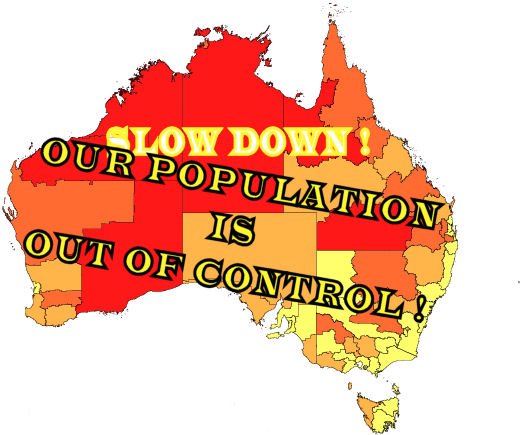


 The final version of Jaws dwarfs all the others. This new monster is eating towns up alive. This is not just a battle to the death; this is WAR! In the novel, Jaws, the monster was not really a white pointer shark, it was the property development lobby, which metastasized with the colonisation of a modest fishing town by rich people from other places. Developers drew power from the wealthy tourists and sea-changers. They took over the original fishing town for their own purposes and democracy seemed fatally wounded. Right to the point of the shark (the developers) trying to eat the boat (symbol of the fishing industry which had begun the town). Until an odd bunch of people had the guts to stand up to the big developers.
The final version of Jaws dwarfs all the others. This new monster is eating towns up alive. This is not just a battle to the death; this is WAR! In the novel, Jaws, the monster was not really a white pointer shark, it was the property development lobby, which metastasized with the colonisation of a modest fishing town by rich people from other places. Developers drew power from the wealthy tourists and sea-changers. They took over the original fishing town for their own purposes and democracy seemed fatally wounded. Right to the point of the shark (the developers) trying to eat the boat (symbol of the fishing industry which had begun the town). Until an odd bunch of people had the guts to stand up to the big developers. 

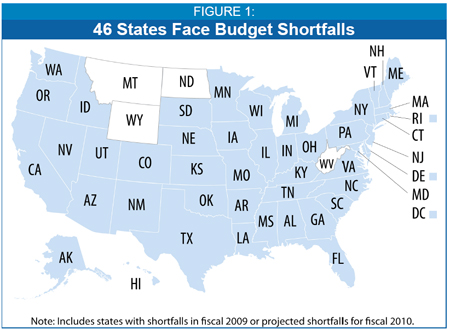
 (Photo of Mary Drost) The Brumby Government tried to undermine this crucial Melbourne Rally and to avoid criticism by announcing they were modifying their offensive Bill, so the mainstream journalists stayed away. But the alternative press is growing and we will not fall for such simple ploys. PEOPLE POWER AT WORK See
(Photo of Mary Drost) The Brumby Government tried to undermine this crucial Melbourne Rally and to avoid criticism by announcing they were modifying their offensive Bill, so the mainstream journalists stayed away. But the alternative press is growing and we will not fall for such simple ploys. PEOPLE POWER AT WORK See 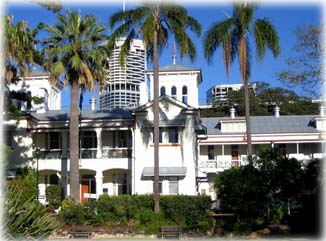
 More than 30 years ago I moved to live in Indonesia and resided in Jakarta on and off for 21 years.
More than 30 years ago I moved to live in Indonesia and resided in Jakarta on and off for 21 years.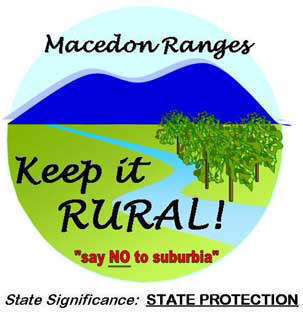 We need look no further than New South Wales and the Wollongong scandal for confirmation that money can buy governments and decisions, particularly planning decisions. Yet NSW has an Independent Commission Against Corruption [ICAC], something we don't have in Victoria.
We need look no further than New South Wales and the Wollongong scandal for confirmation that money can buy governments and decisions, particularly planning decisions. Yet NSW has an Independent Commission Against Corruption [ICAC], something we don't have in Victoria.

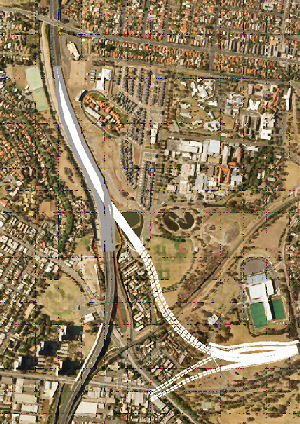
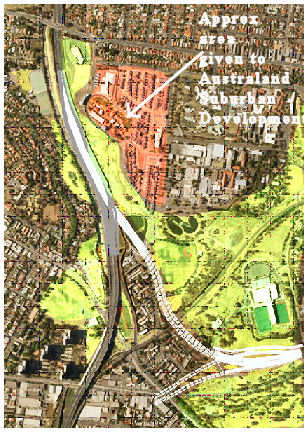

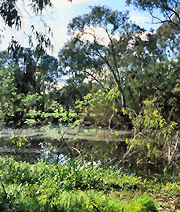
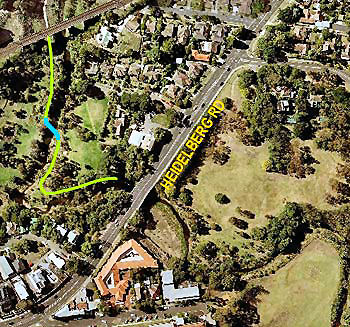
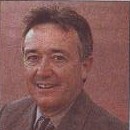 In an effort to silence residents with difficult questions, Western Australia's Cockburn Council routinely limits question time and threatens residents who defy these limits with AU$1,000 fines. The Mayor, Stephen Lee, is now on extended leave after the Crime Commission had found him guilty of misconduct for having accepted an undeclared election campaign donation of AU$43,000 from the Singapore-controlled developer
In an effort to silence residents with difficult questions, Western Australia's Cockburn Council routinely limits question time and threatens residents who defy these limits with AU$1,000 fines. The Mayor, Stephen Lee, is now on extended leave after the Crime Commission had found him guilty of misconduct for having accepted an undeclared election campaign donation of AU$43,000 from the Singapore-controlled developer 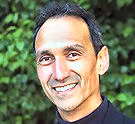
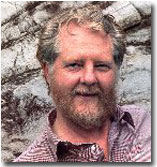

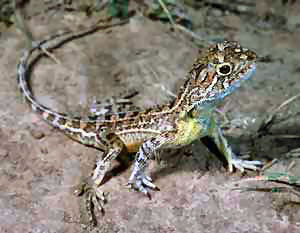
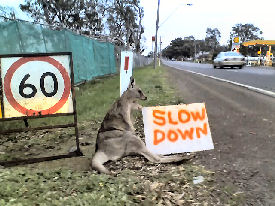 (Photo by Narelle Smith)
(Photo by Narelle Smith)

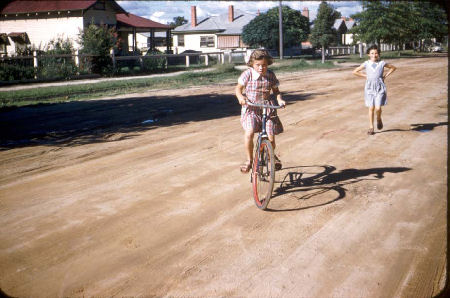



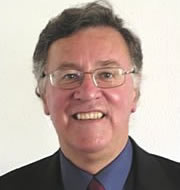
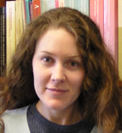
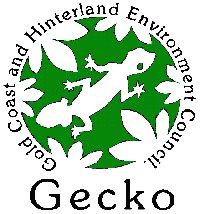
Recent comments